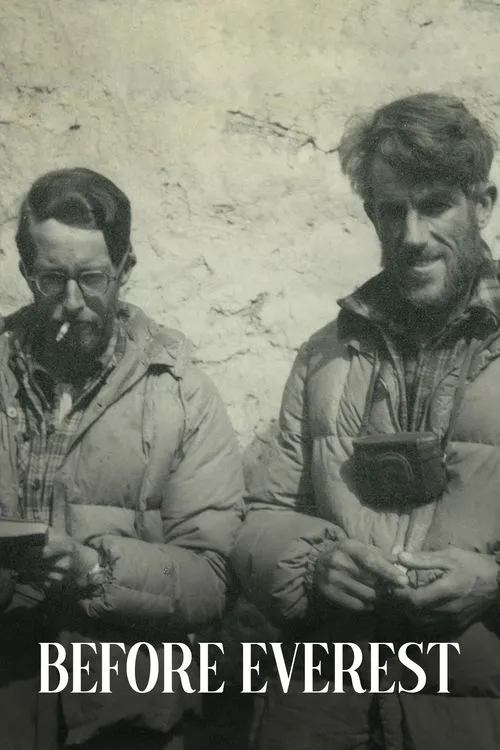Before Everest

Plot
In the late 1950s and early 1960s, mountaineering was a thrilling yet treacherous profession, pushing adventurers to the limits of human endurance. Among the brave souls who embarked on this perilous quest was Earle Riddiford, a highly respected New Zealand mountaineer, explorer, and photographer. However, his reputation took a severe blow when Sir Edmund Hillary, the co-conqueror of Mount Everest, made a scathing remark about him. Richard Riddiford, Earle's son, sets out to explore the complexities of his father's character through "Before Everest," a documentary that delves into Earle's fascinating yet troubled history. The film begins by introducing Earle Riddiford as a celebrated mountaineer who was known for his exceptional climbing skills and adventurous exploits. With his rugged good looks and charismatic personality, he quickly became a popular figure among his peers. However, beneath the surface, Earle struggled with a tumultuous temper and a penchant for reckless behavior, which often led to conflicts with his fellow climbers. One of the most significant events that contributed to Earle's dubious reputation was his involvement in the 1953 British Everest Expedition, where Sir Edmund Hillary and Tenzing Norgay became the first duo to reach the summit. Earle played a crucial role in the expedition, serving as a climber and photographer, but his attitude and behavior created tension among the team members. Although Earle did not make it to the top, he was an integral part of the expedition, providing invaluable skills and experience that contributed to the team's success. In his autobiography, Sir Edmund Hillary made the now-infamous statement, "I'd never share a rope with him," which speaks volumes about the strained relationship between the two men. Hillary's comment was reportedly made in response to Earle's perceived recklessness and arrogance, which some of the team members had witnessed firsthand. Despite Earle's impressive skills as a climber, his inability to work effectively with others, coupled with his short fuse, made him a liability on high-stakes expeditions. Through a series of interviews with people who knew Earle, Richard Riddiford skillfully weaves together a nuanced portrait of his father's complex personality. Some of Earle's former climbing companions recount instances where he would deliberately disregard safety protocols or push his teammates beyond their comfort zones, often resulting in heated arguments and near-disasters on the mountain. Despite Earle's questionable behavior, Richard Riddiford never seeks to condemn or vilify his father but rather to understand the driving forces behind his actions. As the documentary progresses, it becomes clear that Earle's struggles with authority, his intense passion for adventure, and his underlying insecurities played a significant role in shaping his tumultuous relationships with his peers. Through archival footage and personal photographs, Richard Riddiford illustrates Earle's many accomplishments as a climber and explorer, including his pioneering work in the New Zealand Alps and his groundbreaking expeditions to remote regions of the Himalayas. Earle's exceptional skills as a photographer are also showcased, offering a glimpse into the breathtaking landscapes and cultures he was privileged to experience. One of the most poignant aspects of "Before Everest" is its exploration of the emotional toll that Earle's tumultuous life took on his family, particularly his relationship with his son Richard. As Richard delves deeper into his father's past, he grapples with the difficulties of reconciling the complexities of Earle's personality. This introspective journey offers a powerful exploration of the personal costs of ambition, the importance of family, and the resilience required to navigate the darker corners of the human experience. Ultimately, "Before Everest" is a thoughtful and engaging documentary that humanizes a complex and sometimes troubled individual. By sharing the story of Earle Riddiford, Richard Riddiford sheds light on the complexities of mountaineering culture, the high-stakes world of explorers, and the enduring legacies of those who venture into the unknown.
Reviews
Recommendations



